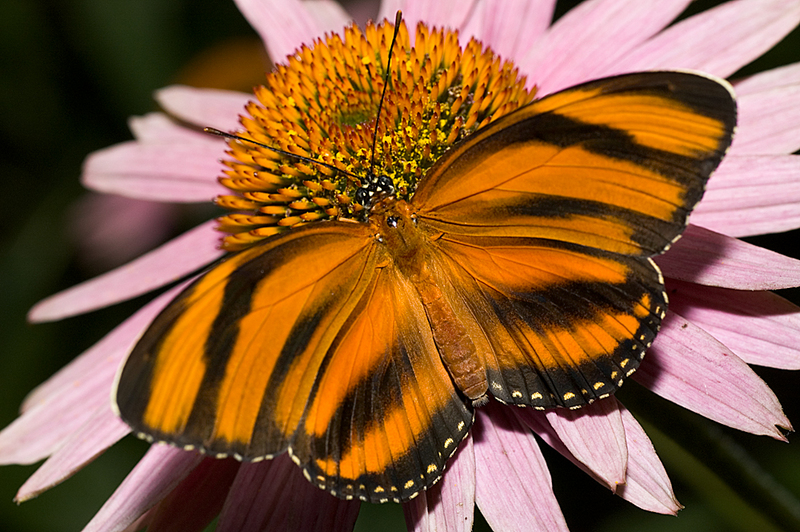|
| 질의: orange tiger | 결과: 149번째/173 | |
Banded Orange Heliconian (Dryadula phaetusa) - Wiki
| 제목: | Banded Orange Heliconian (Dryadula phaetusa) - Wiki
| |

| 해상도: 1000x665
파일크기: 669688 Bytes
촬영일: 2005:07:31 03:42:26
사진기: NIKON D70 (NIKON CORPORATION)
F number: f/13.0
Exposure: 1/500 sec
Focal Length: 90/1
등록시간: 2007:10:13 21:09:05
|
Dryadula phaetusa
From Wikipedia, the free encyclopedia
[Photo] Banded Orange Heliconian (Dryadula phaetusa). Shot at the Minnesota Zoo's Butterfly Exhibit. Image of the Dryadula phaetusa Butterfly atop a Purple Coneflower. 135mm (3.8x) effective focal length. Copyright ?? 2005 by April M. King (http://www.twoevils.org/), aka Marumari (http://en.wikipedia.org/wiki/User:Marumari), donated to Wikipedia under the GFDL. Copyright (C) 2005, April M. King
Permission is granted to copy, distribute and/or modify this document under the terms of the GNU Free Documentation License, Version 1.2 or any later version published by the Free Software Foundation; with no Invariant Sections, no Front-Cover Texts, and no Back-Cover Texts. A copy of the license is included in the section entitled "GNU Free Documentation License". |
Dryadula phaetusa, also known as the Banded Orange Heliconian, Banded Orange, or Orange Tiger, is a species of butterfly (an insect). The sole representative of its genus, the Banded Orange Heliconian is native from Brazil to central Mexico, and in summer can be found rarely as far north as central Kansas. Its wingspan ranges from 86 to 89 mm, and it is colored a bright orange with thick black stripes in males, and a duller orange with fuzzier black stripes in females.
It feeds primarily on the nectar of flowers and bird droppings, and its caterpillar forms hosts in passion vines including Passiflora tetrastylis. It is generally found in lowland tropical fields and valleys.
This species is somewhat unpalatable to birds and belongs to the "orange" Batesian mimic complex (Pinheiro 1996).
Symbiosis
Prior to their mating season, males of this species congregate by the hundreds on patches of moist soil that contain mineral salts. When they cannot find such deposits, the insects visit various animals to drink salty secretions from their skin and nostrils (see the image on the left).
http://en.wikipedia.org/wiki/Dryadula_phaetusa
| The text in this page is based on the copyrighted Wikipedia article shown in above URL. It is used under the GNU Free Documentation License. You may redistribute it, verbatim or modified, providing that you comply with the terms of the GFDL. |
|
^o^
동물그림창고 똑똑전화 누리집
^o^
|
|

